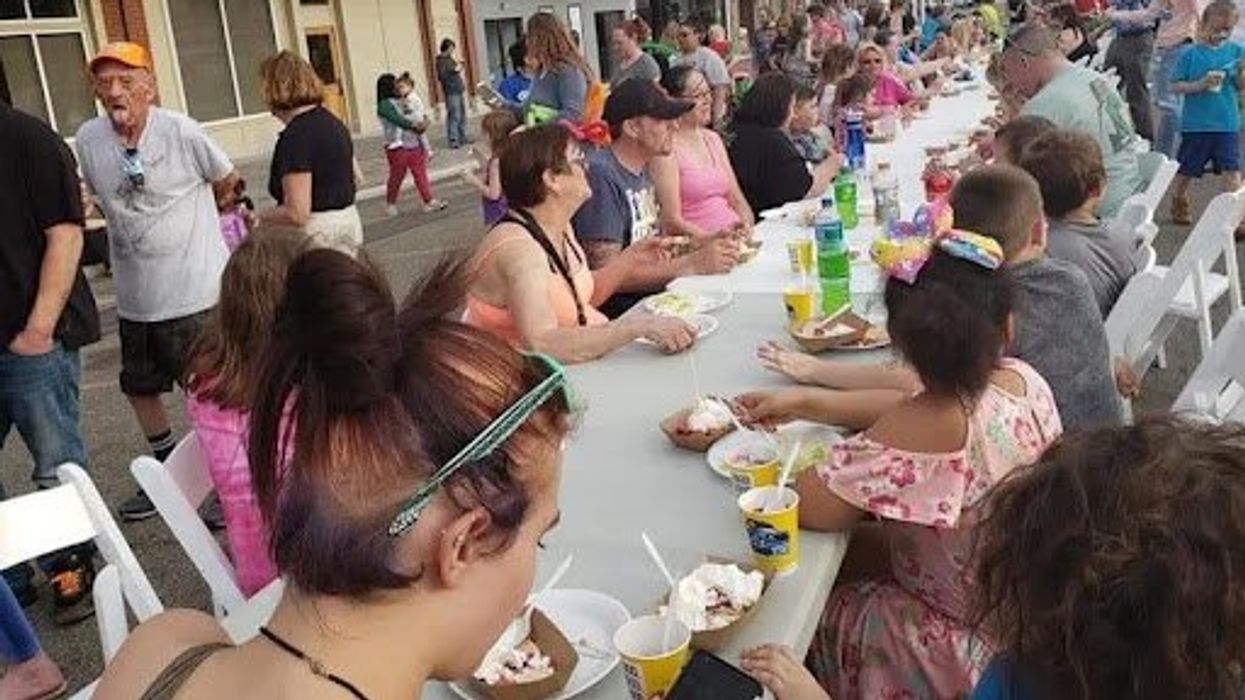The Aspen Institute’s Weave: The Social Fabric Project tackles the problem of broken trust that has left Americans divided, lonely, and in social gridlock. Weave connects and invests in grassroots leaders stepping up to weave a new, inclusive social fabric where they live. This is the second in an ongoing series telling the stories of community weavers from across the country.
Plata is communications manager for Weave: The Social Fabric Project.
If it’s Thursday night in Nelsonville, Ohio, and the weather is fine, you probably have dinner plans. Neighbors in the city of 5,000 people in the Appalachian Mountains gather — at the firehouse, the park, or somewhere else — around big vats of food prepared by volunteers.
“Everyone is welcome to help. We serve one another,” says Dottie Fromal, one of the original organizers of the dinners that started over six years ago. The size of the dinners vary, but up to 350 folks have joined in — about 7 percent of the town’s population. Fromal says in 2020 they served over 19,000 meals.
“It’s two to three hours of chaos, but magical chaos. When we eat the same food, look each other in the eyes, and sit at the same table, magic happens. We can see how much power there is in our community when we show up for each other,” she says.
Nelsonville residents have needed that power as they have watched mining jobs disappear, young folks leave, and opioid addictions rise. “People in this town go through so much that we now start every meal by sharing something positive that happened in our lives,” says Fromal. “As we’ve built trust, people started sharing very intimate things, things that you would share with your family.”
For many weavers, food is the path to opening hearts and creating connections that can then turn into after-school programs, friendships across race or class, support for immigrants or neighbors returning from prison, and any number of other weaving projects. And while it might feel like magic, there’s proof that shared food helps build trust.
Two researchers at the University of Chicago ran a series of experiments to see the effects of eating the same food during negotiations. In one experiment, they asked participants to play the role of a manager and a union representative during salary negotiations. During their discussion, they were served snacks. When the pairs ate the same food, they got to agreement much quicker than when they ate different foods. Sharing food, the researchers found, promotes trust and cooperation.
It’s nice when science backs up what we already know intuitively — that food is a form of love. Yet how to cook for a crowd of a few dozen or a few hundred to kickstart a community is not obvious. We asked Dottie Fromal to share a few suggestions from Nelsonville that work at scale. She mentioned that tacos and baked potato bars are some of the town’s favorites, as they are inexpensive, easy to cook and adaptable to dietary restrictions.
"For tacos, we start with tortilla shells and folks add whatever toppings they want. We usually arrange the food so that vegan and vegetarian options are first and meat options are at the end of the table,” she said. “It’s fun to see the kids try new things, like cilantro. And the adults sometimes try something new, too. Our baked potato bar is similar — we start with a baked potato and then the toppings are arranged so folks can choose what they like.”
This story first appeared in Weave’s weekly newsletter.




















Trump & Hegseth gave Mark Kelly a huge 2028 gift